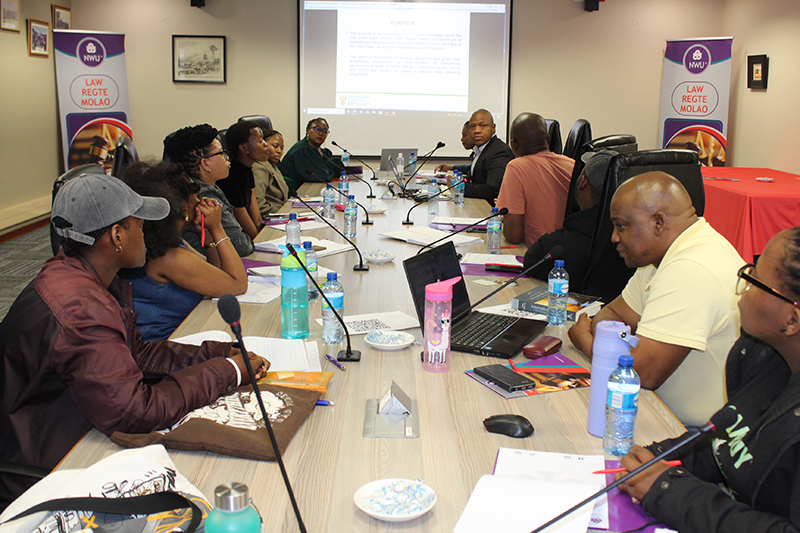By Gofaone Motsamai
Law students have a role to play in critically evaluating international institutions, including the United Nations and its Security Council.
This is according to diplomats and legal experts who spoke at a seminar on the development and conclusion of international agreements, hosted by the North-West University’s (NWU’s) Faculty of Law in collaboration with the Department of International Relations and Cooperation (DIRCO) and the Department of Higher Education (DHET).
Opening the discussions held at the Law building on the Mahikeng Campus, Seipelo Kgosiejang, assistant director of International Relations at the DHET responsible for Africa and Middle Eastern partnerships, gave a practical breakdown of bilateral and multilateral agreements. She emphasised that agreements often extend beyond countries to institutions, citing examples such as partnerships between universities.
“International agreements are just cross-cutting everywhere,” she explained.
Seipelo also challenged students to critically evaluate international institutions. She described the United Nations as “a toothless dog in the 21st century”, pointing out the Security Council’s structural imbalance: “It’s time for Africa to have a full representation within the Security Council itself.”
Binding treaties
Speaking virtually, Emmanuel Meyiwa, a legal researcher and treaty law specialist at DIRCO, outlined the responsibilities of the South African Treaty section.
This section is responsible for binding, depositing and guiding other government departments on implementation of international agreements in terms of the South African Constitution section 231(2) and 231(3), and monitoring the status of national treaty reporting obligations.
Emmanuel detailed the step-by-step process of establishing binding agreements, including certification, obtaining presidential approval and registering the agreements
with the United Nations’ treaty section. He stressed the importance of transparency, adding, “Two reports are compiled: a report on progress with country reports required in terms of multilateral treaties and a report on agreements signed but not yet in force.”
Real-world applications
Khathutshelo Mathelemusa, assistant director of International Relations at the DHET, shared a real-world example of South Africa’s partnerships – the agreement between the governments of the Republic of South Africa and the People’s Republic of China on cooperation in the field of higher education and training. The importance of this agreement lies in its ability to harness international collaboration in advancing South Africa’s education sector.
The symposium bridged academic theory with practical diplomacy, providing law students with insights into South Africa’s treaty processes, constitutional mandates and the evolving role of international organisations.
“International agreements are not just documents; they are tools that shape the world we live in,” Seipelo reminded attendees, inspiring a new generation of legal minds to see themselves as future architects of diplomacy.

Law students and guests engage in discussions on South Africa’s role in international agreements and global institutions during the NWU symposium.
